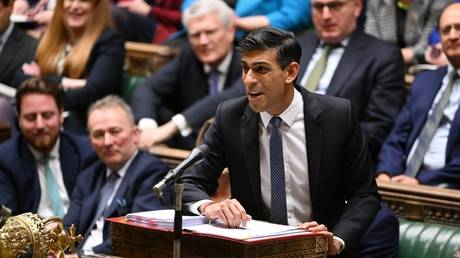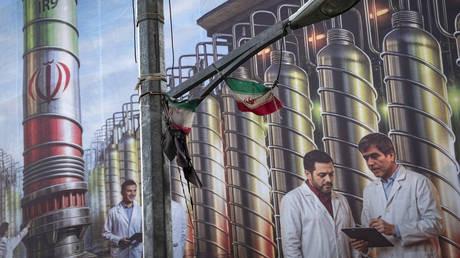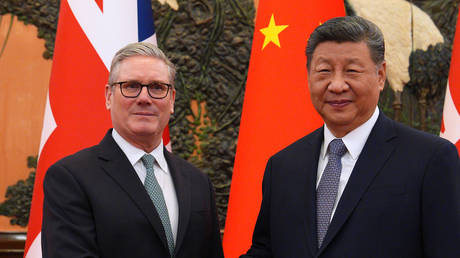
Rishi Sunak promises “tough” labor laws against “unreasonable” coordinated strikes
UK Prime Minister Rishi Sunak has said he will support “tough new laws” targeting labor actions, even suggesting an outright ban on walkouts by certain employees, after thousands of emergency workers announced upcoming strikes demanding pay raises amid soaring inflation.
Addressing MPs on Wednesday, Sunak warned that a wave of imminent strikes in multiple sectors, including healthcare and public transit, would cause major disruptions, saying he is prepared to do “whatever I need to do” to prevent work stoppages in vital industries.
“If the union leaders continue to be unreasonable, then it is my duty to take action to protect the lives and livelihoods of the British public,” he continued, adding “since I became prime minister I have been working for new tough laws to protect people from this disruption.”
The prime minister’s comments came just one day after the Unite, Unison and GMB unions – which represent ambulance workers, paramedics, call handlers and emergency care assistants – said they would launch coordinated strikes involving more than 10,000 employees on December 21 and 28. A number of other walkouts are scheduled in the coming weeks, including a strike by up to 100,000 nurses, as well as actions by railway, mail, bus and education workers across the UK.
Asked if he would consider a ban on walkouts in emergency services, Sunak refused to rule out the idea, but insisted the “government is always going to be reasonable.”
Different administrations have proposed laws that would enforce minimum levels of service during labor strikes since 2019, and a bill containing that requirement is now passing through Parliament. Lawmakers have yet to debate the legislation, which is still at an early stage.
British public sector workers are campaigning for a pay rise above inflation, which exceeds 12% amid a cost-of-living crisis. The UK has been suffering from rising energy prices since last year, and the crisis worsened when Western nations imposed economic sanctions on Russia due to the Ukraine conflict.
Last week, a top official in Sunak’s cabinet urged the unions to drop their demands, arguing it was not “not the time” to ask for higher wages and calling for unity to send a “very clear message” to Russian President Vladimir Putin.




